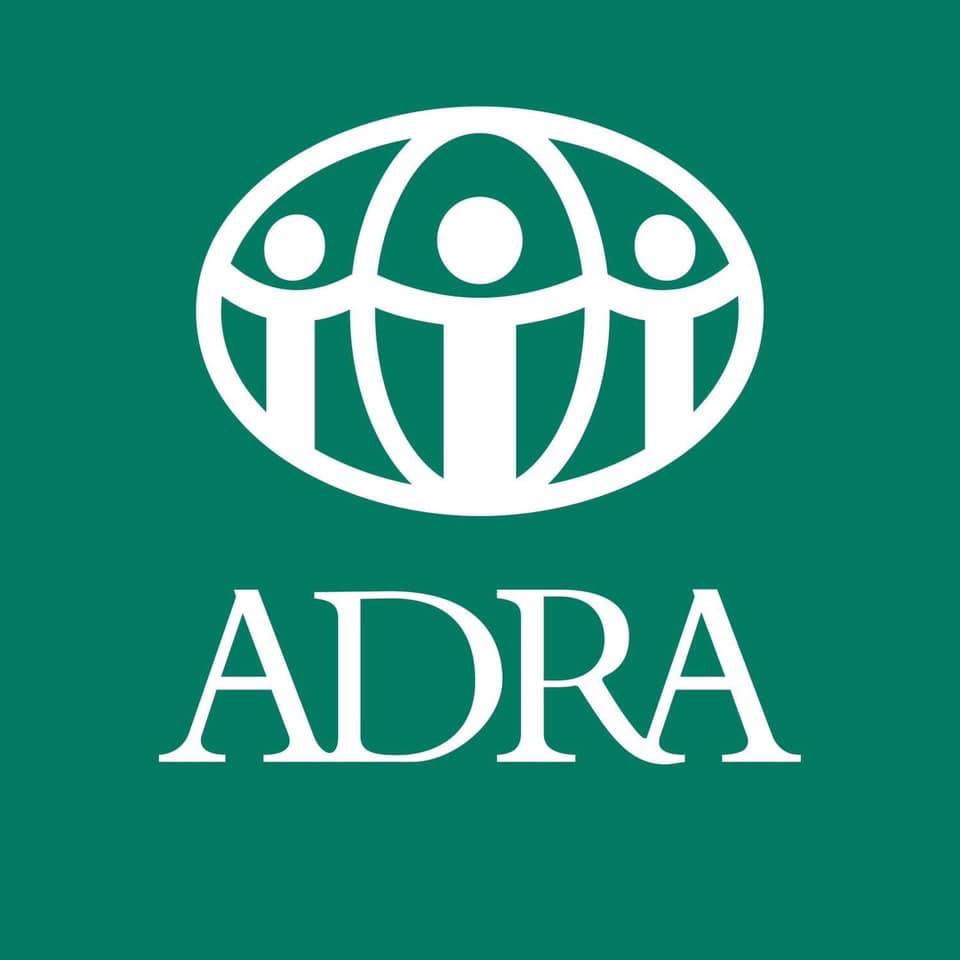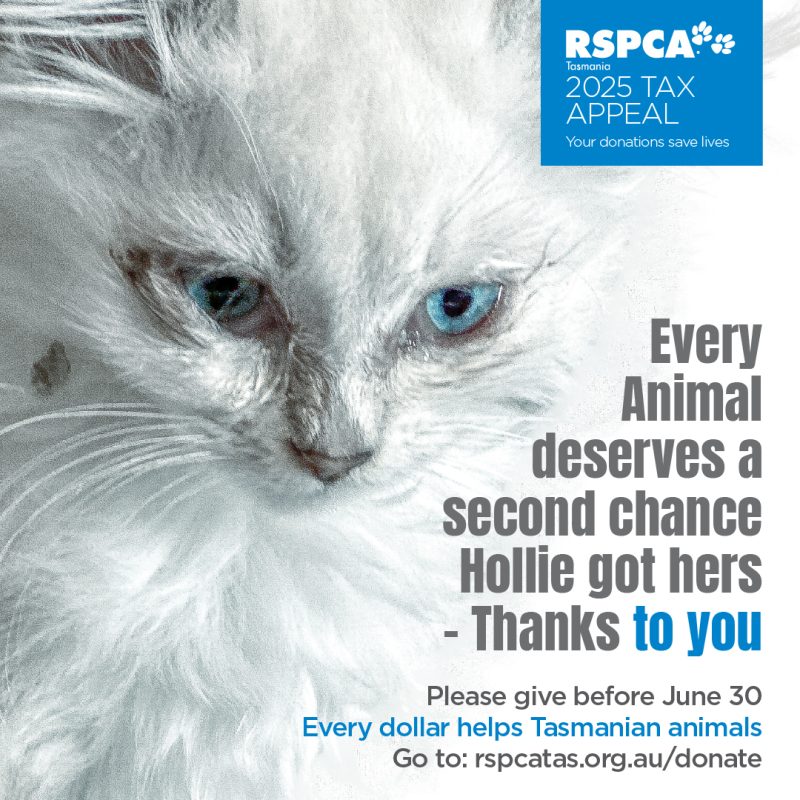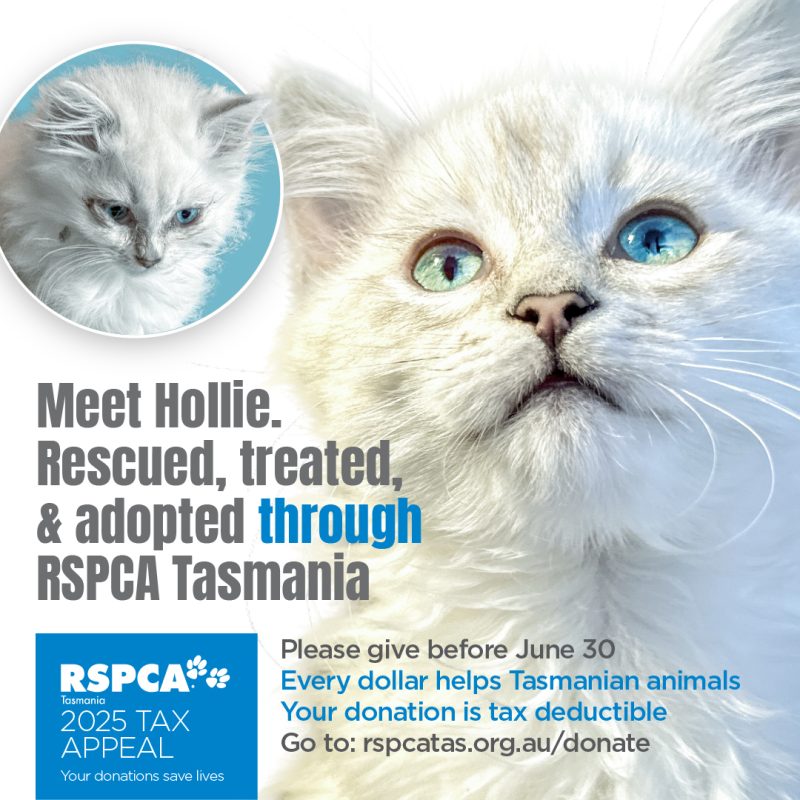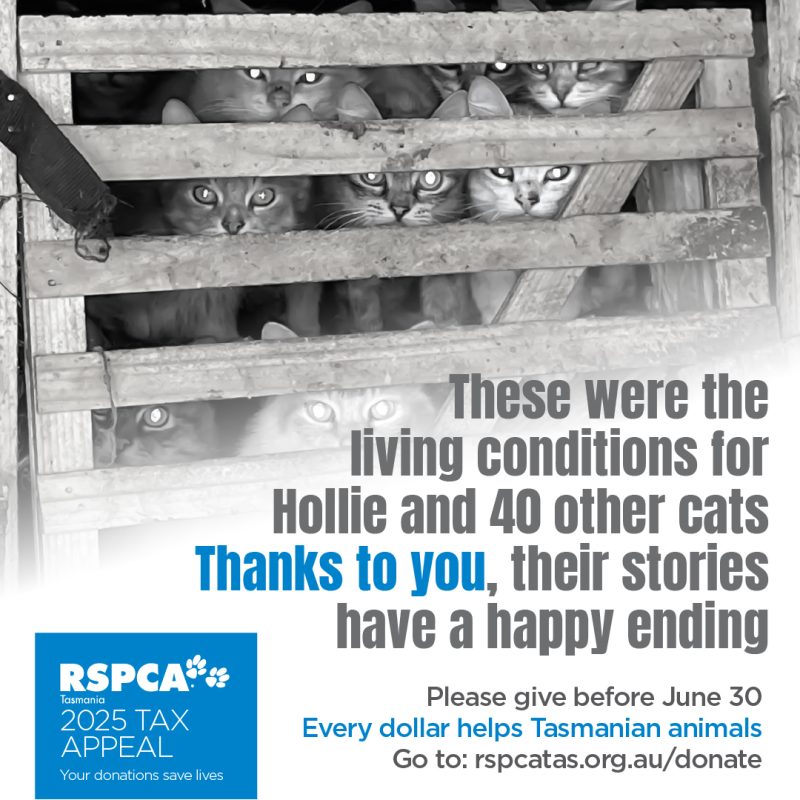RSPCA TASMANIA FOSTER CARE FAQ
What types of animals need foster care?
 Baby animals who are too young to be re-homed, mothers with litters, animals who require rest or rehabilitation after surgery or those with treatable medical conditions, animals who require socialisation or behavioural rehabilitation, and some animals who just need a place to temporarily call their own. Foster carers don’t just look after dogs and cats. We sometimes need carers for a range of animals, including poultry.
Baby animals who are too young to be re-homed, mothers with litters, animals who require rest or rehabilitation after surgery or those with treatable medical conditions, animals who require socialisation or behavioural rehabilitation, and some animals who just need a place to temporarily call their own. Foster carers don’t just look after dogs and cats. We sometimes need carers for a range of animals, including poultry.
How long will you have a foster animal for?
 This can range from one week to a few months. It all depends on the requirements of the animal and the availability of the foster carer.
This can range from one week to a few months. It all depends on the requirements of the animal and the availability of the foster carer.
What does the RSPCA provide?
 Food, kitty litter, all veterinary treatments and advice, behavioural support, and items such as leads, crates, cages and so on.
Food, kitty litter, all veterinary treatments and advice, behavioural support, and items such as leads, crates, cages and so on.
What do the animals need from their foster parent?
 A safe and secure environment, exercise, reliable transport to and from the Care Centre and lots of TLC! You don’t need qualifications, formal training or experience, because we’ll help you along the way.
A safe and secure environment, exercise, reliable transport to and from the Care Centre and lots of TLC! You don’t need qualifications, formal training or experience, because we’ll help you along the way.
What if you work fulltime?
 Most foster animals are ok to be left alone in a secure place at home during working hours. High care animals are sent to experienced foster carers, who are able to give them extra attention.
Most foster animals are ok to be left alone in a secure place at home during working hours. High care animals are sent to experienced foster carers, who are able to give them extra attention.


























